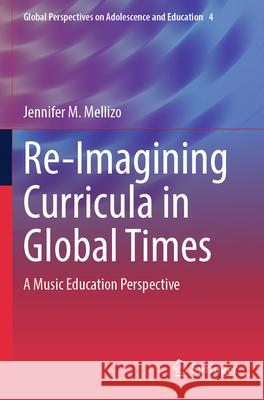Re-Imagining Curricula in Global Times » książka
topmenu
Re-Imagining Curricula in Global Times
ISBN-13: 9783031376214 / Angielski / Miękka / 2024
Re-Imagining Curricula in Global Times
ISBN-13: 9783031376214 / Angielski / Miękka / 2024
cena 563,56
(netto: 536,72 VAT: 5%)
Najniższa cena z 30 dni: 501,19
(netto: 536,72 VAT: 5%)
Najniższa cena z 30 dni: 501,19
Termin realizacji zamówienia:
ok. 16-18 dni roboczych.
ok. 16-18 dni roboczych.
Darmowa dostawa!
Through this book, the author examines the role of music education within the larger global education movement. Specifically, the author argues music education has unique potential to foster positive global identity and to promote higher levels of intercultural sensitivity during adolescence.
Music educators can use the framework in this book to craft lessons that will help their adolescent students develop positive global identities as they progress towards higher levels of intercultural sensitivity within the context of musical learning experiences. The book also offers a framework that can help practicing and pre-service music educators to engage in the type of cultural and musical self-reflection needed to resist deeply engrained hegemonic tendencies. As such, more students have access to an inclusive, flexible, and meaningful musical education.Within the final two chapters, the author proposes - and provides concrete examples of - a new curricular planning strategy for music educators which synthesizes the information presented in the preceding chapters and provides a concrete vision for (re)imagining music education as global education.











